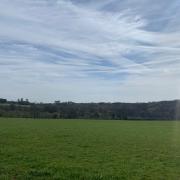
Speakers: Ian Rutherford, Gonda Van Steen, Antony Makrinos, Fiachra Mac Góráin, and Peter Agócs.
On January 25th, 2020, UCL hosted 'Homer Day' which was organised by the Department of Greek and Latin at UCL and the Summer School in Homer 2020 from 10:00 to 16:00. The event took place at the Institute of Education, Bedford Way. The payment method was cash upon arrival (£6.00 for adults and £4.00 for students) and refreshments were available to those who wished for them during the tea breaks.
Short lectures were given by five modern scholars: Ian Rutherford, Gonda Van Steen, Antony Makrinos, Fiachra Mac Góráin, and Peter Agócs. This was followed by a screening of "For an empty tunic, for a Helen", this was a film in which five women played the role of young and old Helen, conveying their interpretations of her experiences, thoughts, and feelings.
Homer Day began with a plenary talk about Troy in the Bronze Age. This was delivered by Ian Rutherford who spoke in a clear and concise manner of The Hittites - Troy/Ilion, a theme in Greek Epic/Mythology. Hisarlik - the archaeological site in Turkey that we apparently know as Troy (excavated, and perhaps ruined, by Calvert and Schliemann in the 1870s), and Wilusa - a term in the Hittite archives, probably based at Hisarlik, and the Aleksandra Treaty, 13th BC, was also mentioned.
Ian Rutherford was followed by Gonda Van Steen (KCL) on Ritsos' poem 'Penelope's Despair' which is based on Homer's 'The Odyssey', Book 23. Steen gave a brief summary of events in Book 23 and then the poem was read. Steen said that Penelope's recognition of Odysseus is "not about recognising her husband physically - but recognising the new reality that he will bring. It was not that she didn't recognise him - she knows it's him, she needs to realise everything is going to be set back 20 years".
This was followed by Antony Makrinos (UCL), who spoke about Cavafy's representations of Achilles. According to Makrinos, Cavafy was born in Alexandria, 29 April 1863 and is known in Greece as 'the poet of old age'.
Fiachra Mac Góráin (UCL) subsequently expressed his views on emotions in Homer and Virgil, particularly pietas ( duty to country, Gods and Fatherland) and furor (or rage). Afterwards, Peter Agócs (UCL) talked about anger and wrath in Homer, then Antony Makrinos spoke of love in Homer.
The day ended with a screening of "For an empty tunic, for a Helen", an interesting and satisfying close to a day of academic brilliance.
By Lauren Cudjoe


























